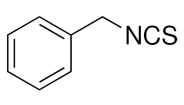Synonymous SNPs may influence the transcriptional efficiency or later stability of mRNA and may ultimately affect protein expression. Previous studies demonstrated that over expression of SMAD7 led to tumorigenesis by disturbing TGF-b induced apoptosis, while deletion of Smad7 increased apoptosis in the hearts of mutant mice. Furthermore, while the majority of homozygous mutant mice with a deletion of the MH2 domain died in utero due to various cardiovascular defects, deletion of the MH1 domain of SMAD7 did not cause changes to the cardiovascular phenotype. The MH2 domain of SMAD7 is important for the inhibition of TGF-b signaling, and both rs3809922 and rs3809923 are located at the MH2 domain. They may disrupt TGF-b signaling by affecting SMAD7 expression, thus impairing normal cardiac development and contributing to CHD AbMole Diatrizoic acid predisposition. Alternatively, these variants may not cause the disease themselves but may be in LD with other or unknown disease causing variations in the regulatory region of SMAD7. For example, a novel variant mapping to the enhancer of SMAD7 was found to be in LD with the colorectal cancer risk variant rs4939827 identified in a GWAS study; this variant proved to be functional in transcription factor binding and gene expression. Furthermore, because single variant is unlikely to have a large impact on the expression of a transcript, gene variants may increase disease risk by interacting with other potential risk alleles. We used haploview to infer regions in strong LD with rs3809922 and rs3809923 based on Han Chinese data from the 1000 Genomes Project. The genomic regions were extended  approximately 50 Kb around the two variants. We found an approximately 10 Kb region that was in extremely strong LD with the two risk alleles. Future challenges will be to determine whether the associated SNPs play functional roles in susceptibility to CHD and elucidate the mechanism by which genetic variants influence CHD risk. We also analyzed the variants status of rs3809922 and rs3809923 based on data from the 1000 Genomes Project. The result showed that the allele frequencies of these two variants varied greatly in different populations. In European and Africa populations, the risk allele frequencies were particularly low or the loci were monomorphic. However, the frequencies of the two risk alleles were comparatively high in East Asian population, and the risk allele frequencies of CHB and CHS populations are AbMole Succinylsulfathiazole similar to the result observed in the control population in this study. Given this finding, we hypothesized that there might be population or regional differences in susceptibility for CHD for rs3809922 and rs3809923 variants. Identification of these risk loci provides a new perspective on CHD causation. Considering the important role of SMAD7 in cardiac development in early embryos and normal cardiac function in adults, investigation of the mechanisms by which these genetic variants affect CHD risk could provide opportunities to develop new diagnostic and therapeutic strategies. In recent years, community acquired MRSA strains that are genetically unrelated to the traditional hospital have emerged. MRSA Clonal Complex 398 associated with livestock has been described as a new clonal lineage infecting or colonizing humans in several countries around the world. According to several studies, human’s exposure to livestock constitutes a risk-factor for carriage of MRSA CC398 strains an’ development of a possible infection. Carriage prevalence in livestock farming profession is very high, but some strains have been detected in people without risk factors.
approximately 50 Kb around the two variants. We found an approximately 10 Kb region that was in extremely strong LD with the two risk alleles. Future challenges will be to determine whether the associated SNPs play functional roles in susceptibility to CHD and elucidate the mechanism by which genetic variants influence CHD risk. We also analyzed the variants status of rs3809922 and rs3809923 based on data from the 1000 Genomes Project. The result showed that the allele frequencies of these two variants varied greatly in different populations. In European and Africa populations, the risk allele frequencies were particularly low or the loci were monomorphic. However, the frequencies of the two risk alleles were comparatively high in East Asian population, and the risk allele frequencies of CHB and CHS populations are AbMole Succinylsulfathiazole similar to the result observed in the control population in this study. Given this finding, we hypothesized that there might be population or regional differences in susceptibility for CHD for rs3809922 and rs3809923 variants. Identification of these risk loci provides a new perspective on CHD causation. Considering the important role of SMAD7 in cardiac development in early embryos and normal cardiac function in adults, investigation of the mechanisms by which these genetic variants affect CHD risk could provide opportunities to develop new diagnostic and therapeutic strategies. In recent years, community acquired MRSA strains that are genetically unrelated to the traditional hospital have emerged. MRSA Clonal Complex 398 associated with livestock has been described as a new clonal lineage infecting or colonizing humans in several countries around the world. According to several studies, human’s exposure to livestock constitutes a risk-factor for carriage of MRSA CC398 strains an’ development of a possible infection. Carriage prevalence in livestock farming profession is very high, but some strains have been detected in people without risk factors.
The majority of the MRSA sequence type 398 strains are related to skin and soft tissue infections
Leave a reply